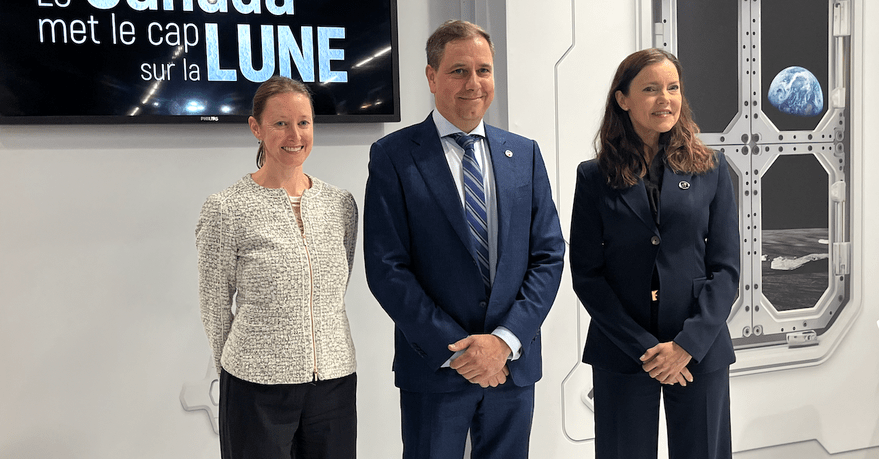MILAN – Spire Global and Canadian startup Mission Control announced plans Oct. 16 for Persistence, a technology demonstration mission focused on space-based artificial intelligence.
“The Persistence mission will demonstrate resilient onboard spacecraft autonomy over a yearlong demonstration of deep learning AI in space,” Ewan Reid, Mission Control founder and CEO, said at the International Astronautical Congress here.
The Persistence mission, housed in a six-unit Spire Lemur cubesat with an optical camera, has applications beyond Earth observation.
“Earth observation is important, but this is about updates over the air, validating a model in real time, measuring model parameters and performance, and proving that AI can be trustworthy and be used in all sorts of upcoming applications,” Reid said in a news briefing.
Through Persistence, Mission Control plans to demonstrate its SpacefarerAI platform, which is designed to streamline the deployment and update of AI models for spaceflight applications.
On-Orbit ProcessingThe mission will “demonstrate the power of robust and resilient AI for in-orbit processing to preserve bandwidth, enable rapid decision making and improve our knowledge of Earth,” Reid said.
The Canadian Space Agency is providing 75 percent of the funding for the Persistence mission. Remaining funding will be contributed by Mission Control. The overall cost of the program was not disclosed.
“We are so proud to see the Canadian Space Agency funding make such a difference in extraordinary Canadian companies,” said Lisa Campbell, Canadian Space Agency president. “It allows them to take their investments even further into the cosmos and take technology to the next level.”
The Persistence mission also showcases Spire’s growing space-as-a-service business, said Theresa Condor, Spire chief operating officer.
Spire will design, build, launch and operate the Persistence mission’s Lemur satellite.
“By leveraging our expertise in satellite and payload design, build and operation alongside Mission Control’s innovative AI software, this mission represents a significant step forward in advancing on-orbit AI processing,” Condor said. “We are excited to contribute to the development of cutting-edge autonomous systems and driving technological progress in the space sector.”
